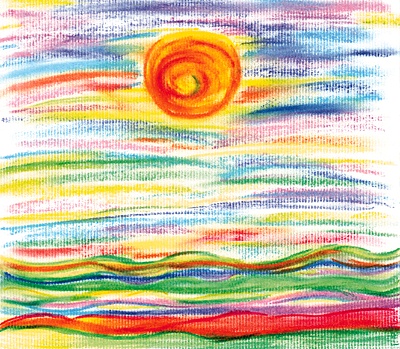All Nonfiction
- Bullying
- Books
- Academic
- Author Interviews
- Celebrity interviews
- College Articles
- College Essays
- Educator of the Year
- Heroes
- Interviews
- Memoir
- Personal Experience
- Sports
- Travel & Culture
All Opinions
- Bullying
- Current Events / Politics
- Discrimination
- Drugs / Alcohol / Smoking
- Entertainment / Celebrities
- Environment
- Love / Relationships
- Movies / Music / TV
- Pop Culture / Trends
- School / College
- Social Issues / Civics
- Spirituality / Religion
- Sports / Hobbies
All Hot Topics
- Bullying
- Community Service
- Environment
- Health
- Letters to the Editor
- Pride & Prejudice
- What Matters
- Back
Summer Guide
- Program Links
- Program Reviews
- Back
College Guide
- College Links
- College Reviews
- College Essays
- College Articles
- Back
Hot Months
Students are students from September to June, but during the summer they become teenagers. For nine months, students follow the rigid schedule of schooling and become almost robotic when learning. School becomes a place of numbers, grades and competition, instead of learning and adventure. Attention is not meant for six topics, five days a week, yet we schedule the free mind into a small box. The curiosity inherently present in children weakens as students learn to educate themselves with a formula of memorization and indifference.
However, the system has a small window of recovery. It is an opportunity to capture the fleeting curiosity and to follow individual passions for two hot months every year. Every teenager has curiosity burning in their minds. They are all philosophers to an extent, trying to figure their world out and finding revelation in everyday experiences. I suppose that the most iconic example of curiosity is the color question. Just recently, it came up in my physics class. My friend’s face began to dance as she told us of her revelation. When she heard the teacher ask us to use a blue marker, she began to wonder why blue was blue. Her curiosity led her to question the label of “blue.” She asked, “What if the blue I see is not the same as the blue you see? There is no way to prove that blue is blue! Blue is not real!” Though the matter was trivial, it became significant because of her curiosity and her inner philosopher. Within the hour, the listeners to her revelation drew silent as they contemplated the fact that they had taken for granted was not real.
That is the natural state of childlike curiosity. Children have an affinity for learning. They contemplate trivial matters and find excitement within their own thoughts. Learning should not be mandated, but sought by children. Knowledge is more interesting when found out, not given. Two months away from school learning gives time for self-discovery and passion.
I was a teenager last summer. I believe that for self-discovery, one must venture into the wilderness. So, I found my wilderness in a friend. I think that my parents thought that this was an old friend, but to me, she was a brand new friend. She was a new person who had discovered herself for two years, two thousand miles away from me. Her new experiences and revelations had made her the wilderness to me.
People are naturally inconsistent. They have this grand ability to adapt, to think, and to change according to their experiences. This ability brings complexity and diversity to life, and along comes beauty and originality.
To an extent, she was pure to me. She was pure from the contaminants that I had flushed through my mind, and I could finally see the effect that my environment had on me. She was able to think in a way I had long ago closed my mind to. Prior to our reunion, I had disliked rap music. I had thought that rap music was vulgar and senseless. I had never thought of rap music as a way of expression, similar to poetry or art. From her, I learned that there were many sides to rap music, and that rap is a legitimate form of expression. Through her, I began to see the beauty and creativity in rap.
It is undeniable that we become attached to our everyday experiences. Comfort in sameness may be favorable from an evolutionary perspective, because it helps us stay out of trouble and danger. But the difference between humans and other animals is our ability to think and to discover. To break the animalistic barrier, we must courageously discover and sometimes get in trouble.
Every day in the wilderness is an adventure to transcend self-imposed limitation, biases, and fears. Venture into the wilderness to know more about the world not through textbooks, but through experiences and relationships. The keystone of friendship may not be similarity, but difference. Difference brought by the complexity of our individual perspectives makes relationships interesting and experiences meaningful.
There was a melancholy to our friendship. It was the idea that what we had was so beautiful, but it was also so temporary. Maybe that is the reason that beautiful moments can make us sad, because we know that they cannot last forever. Life is temporary and love is fleeting, and so there is sadness to both. Do we close our hearts and minds because we know of love’s evanescence or, do we love harder and more intensely to combat time? I think we did the second.
Because I was a teenager for two months, I love harder and think more freely.

Similar Articles
JOIN THE DISCUSSION
This article has 0 comments.
